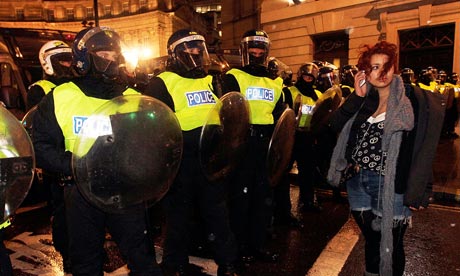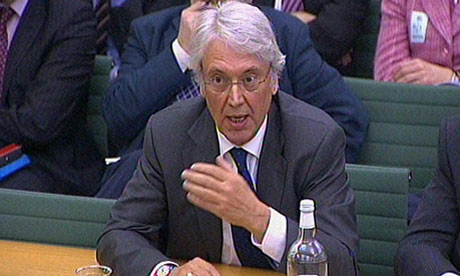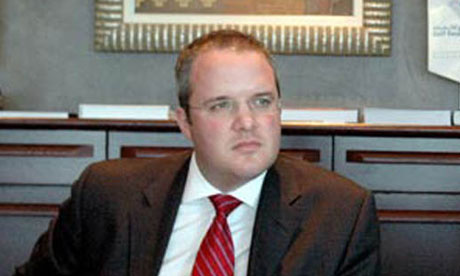Check requested on James Gordon Brown (2003)

Stidwill, whose counsel maintained he had no idea the names being checked belonged to politicians, said after being cleared: "It has been a dreadful waste of taxpayers' money. We've been to court 13 or 14 times over that period and treated like criminals. It's had a terrible effect on us all."
• The first, on 13 September 2000, was on Martin Salter, the Labour MP for Reading West.
Salter had displeased Rebekah Brooks, then News of the World editor. He refused her request to support her notorious campaign for Sarah's Law to "protect us from pervs". Shortly afterwards, on 24 September 2000, NoW readers were urged to pillory him personally in a "naming and shaming" stunt.
Salter says: "She responded with some foul personal attacks so typical of the bullying style of the former NoW. I remember canvassing that Sunday morning and it was particularly unpleasant."

Gordon Brown's office were warned about illegal data checks on the former prime minister in 2003. Photograph: Christopher Furlong/Getty Images
An unexpected ruling by a judge six years ago effectively covered up the chance to publicly expose evidence of the illegal targeting of Gordon Brown, which had been unearthed by a startled team of provincial detectives.
Operation Reproof, by Plymouth police, revealed the first of what became many systematic attempts to gain illegal confidential information on the prime minister and his family, but their findings were suppressed.
The Guardian has now been able to document the facts.
Files buried in police archives detail the discovery of an extraordinary nationwide network of private investigators, whom a corrupt local police officer was feeding with information filched from the police national computer (PNC).
To the detectives' surprise, the targets included the then chancellor of the exchequer, listed by his full name, James Gordon Brown and date of birth, as well as two other Labour politicians.
They were the chancellor's close colleague, the agriculture minister Nick Brown, plus the embattled MP for Reading West, Martin Salter, who at the time of the PNC break-in had been publicly put on an "enemies list" by the then News of the World editor, Rebekah Brooks.
An Exeter detective constable, Phil Diss, was covertly performing PNC checks, which were subsequently sold on to private investigators in bulk, for as little as £40 or even £20 a time.
Gordon Brown's office were privately warned in 2003 at the time of discovery of the illegal data checks, according to sources familiar with the case. So too were Nick Brown and Salter.
Diss, a popular and long-serving police officer, used his official access to the PNC to supply results to his former boss, a retired police inspector, who ran a commercial investigation agency in Exmouth, servicing other private detectives across the country.
SAS Investigations in Exmouth gleaned material from a stable of several local police officers and civil servants able to get into official databases, containing criminal records, other police intelligence and social security details.
The purchaser of information on the three Labour politicians was Glen Lawson, another private detective in Newcastle upon Tyne, according to police records and court transcripts obtained by the Guardian.
Lawson, who still trades in Tyneside under the name Abbey Investigations, refuses to say which journalists contracted him to pursue Gordon Brown and other members of the Labour government. He told the Guardian at the weekend: "I am not going to make any comment".
Lawson was raided on 26 February 2003 by Devon and Cornwall police and his files seized. He himself was not charged, the court was later told, because of a CPS decision to try to avoid excessive prosecution delays.
But the evidence involving Gordon Brown did form part of the Crown case against Diss and his former boss, Alan Stidwill of SAS Investigations. Eventually, six people were charged with offences involving misconduct in public office after a three-year investigation across the country called Operation Reproof.
It strained the budget of Devon and Cornwall police, forcing them to agree to limit the range of defendants and to focus research on their own West Country area. But, a police spokesman told the Guardian this week, as far as those six were concerned: "We thought we had a strong case."
The police team were then surprised and upset when Judge Paul Darlow refused in 2005 to regard the issue as sufficiently serious to go to trial. He prevented a jury from hearing the case, saying the alleged behaviour was too trivial to justify criminal misconduct charges, and the proposed trial would be a waste of public money.
The papers in front of him identified the two ministers and an MP. Darlow specifically referred at a pre-trial hearing to the fact that "particulars in respect of the chancellor of the exchequer were sought and obtained".
But he nonetheless accepted defence claims that the illegal PNC information had been primarily passed to respectable insurance companies, finance houses and other detective agencies, in order to prevent fraud.
He asserted that an eight-week trial might cost as much as £1m in legal fees: "In my judgment it is not a proportionate use of valuable resources to prosecute these matters," he said.
As a result, all the defendants were formally acquitted, and none of the evidence was made public.
Stidwill, whose counsel maintained he had no idea the names being checked belonged to politicians, said after being cleared: "It has been a dreadful waste of taxpayers' money. We've been to court 13 or 14 times over that period and treated like criminals. It's had a terrible effect on us all."
The PNC checks
PNC checks were made by detective constable Diss on three Labour politicians, according to police interview transcripts obtained by the Guardian. All were in late 2000.
• The first, on 13 September 2000, was on Martin Salter, the Labour MP for Reading West.
Salter had displeased Rebekah Brooks, then News of the World editor. He refused her request to support her notorious campaign for Sarah's Law to "protect us from pervs". Shortly afterwards, on 24 September 2000, NoW readers were urged to pillory him personally in a "naming and shaming" stunt.
Salter says: "She responded with some foul personal attacks so typical of the bullying style of the former NoW. I remember canvassing that Sunday morning and it was particularly unpleasant."
False rumours had been circulated earlier in the year by opponents in his constituency that he had convictions for cannabis and GBH. He had also made no secret of the fact that he had smoked cannabis in the past and believed in its decriminalisation.
• A few days later, on 18 September, DC Diss was asked to do another check, this time on Nick Brown, the agriculture minister and Labour MP for Newcastle East who had previously been "outed" as gay by the News of the World. Nick Brown had just been tipped as Gordon Brown's campaign manager in a rumoured leadership bid attempt to unseat Tony Blair.
• The third occasion came two months later, on 16 November, when a check was requested on "James Gordon Brown". The Murdoch papers were at that point taking Blair's side in his continuing feud with Gordon Brown.
All the requests came from Glen Lawson at Abbey Investigations in Newcastle upon Tyne, who paid £20 or £40 a time, according to the seized invoices. Each time, the answer "no trace" was faxed over to him.
Lawson refuses to identify his customer, but the court was told it was believed to be a newspaper.
BROWN to BLAIR 'I will bring you down with sleaze'












